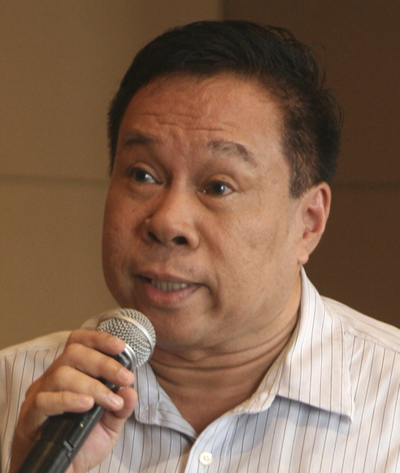 The International Air Transport Association (IATA) through Rodrigo Reyes – Regional Manager Airports, Passenger, Cargo & Security (APCS) Asia Pacific – has reactivated the Philippine e-Freight Working Group (PH-EFWG).
The International Air Transport Association (IATA) through Rodrigo Reyes – Regional Manager Airports, Passenger, Cargo & Security (APCS) Asia Pacific – has reactivated the Philippine e-Freight Working Group (PH-EFWG).
The objective is to bring together key players in Philippines to do the following:
- Undertake concerted, effective action to promote and adopt e-Freight program in the Philippines;
- Understand in detail any issues and e-Freight blockers that are specific to the Philippines, and those that are faced by individual stakeholders in the country;
- Identify and undertake actions required to deal with those issues;
- Bring a heightened awareness and energy on e-Freight to generate greater momentum in the Philippines; and,
- Identify best practices for recommendation to other live e-Freight locations, where future Working Groups may be put in placeThe PH-EFWG will agree to a set of short-term list of deliverables which all members of the group will work on jointly, as follows:
- Develop an industry plan and road map to migrate from the current paper-based process to a paper-free environment, where feasible;
- Identify existing gaps in the local processes and adopt an action plan to address those gaps;
- Define timelines on those action plans;
- Develop a local e-AWB Handling Guideline (SOP) to be published for local stakeholders; and,
- Contribute its resources in support of the industry/joint plan and road map.
As there are literally many documents needed when moving cargo via air, the eFWG will focus on the following e-Freight documents:
- Invoice
- Packing List
- Letter of Instruction
- Master Air Waybill
- House Waybill
- House Manifest
IATA also suggested that eFWG initially focus on getting e-AWB adopted, which is the most logical first step to transition to a paper-less environment.
The 1st PH-EFWG meeting was held February 3 at Miascor. The following stakeholders attended:
- Philippine Airlines
- Air France/KLM
- Delta Airlines
- Emirates
- Kuwait Airways
- Qatar Airways
- Singapore Airlines
- MIASCOR
- PAGSS
- Cargo Community Network (Singapore)
- Cargo Data Exchange Center, Inc
- e-Konek Pilipinas
- InterCommerce Network Services
- Aircargo Forwarders of the Phils /Eagle Express
- DB Schenker
IATA Cargo Tracker –Jan 2016
According to the January 2016 edition of IATA Cargo Tracker, Cathay Pacific Cargo (CX) is continuing to roll out the electronic air waybill (e-AWB) in 21 countries. By the end of 2015, e-AWB penetration for Cathay Pacific Cargo reached 70.3%, successfully hitting its e-AWB year-end target of 70%. This demonstrates a positive increase of 15% e-AWB penetration in 2015.
Some of the key areas that have helped drive this growth in 2015 have been the speedy industry adoption of the IATA Multilateral e-AWB Agreement, top management full support and excellent collaboration from a worldwide ‘can-do’ spirit team at Cathay Pacific Cargo. This has enabled a very successful rollout in Australia, Canada, China, Hong Kong, India, Japan, Korea, Singapore, Taiwan and United States throughout 2015.
IATA Cargo Tracker also reported that Qatar Airways (QR) successfully ended the year with a 52.3% e-AWB penetration, a +7.3% increase over their year-end target. A boost to QR’s e-AWB initiative has come through China opening up to e-AWB. Shanghai Pudong International achieved 60% and Guangzhou Baiyun International 50% penetration in just four months, a very impressive achievement.
QR is an active participant of the eAWB360 program and QR’s targeted stations under eAWB360 are responding positively. To date, there is a notable increase in e-AWB penetration at Amsterdam, Johannesburg, Dubai, and Paris Charles de Gaulle stations. In line with eAWB360, communications were sent out to markets of the selected project stations informing them that QR would switch over to e-AWB as its preferred means for shipping cargo during the first week of November 2015. There was increased e-AWB activity observed in most of the stations to join the paperless campaign within the first wave of circulation.
Leo V. Morada is a subject expert on IT applications in Philippine port operations with more than 30 years’ senior IT management experience implementing technology solutions in port operations, electronic transactions with customs & port authority, and air/sea port community system applications. He is Director of Cargo Data Exchange Center, Inc, a customs-accredited Value Added Service Provider. He can be contacted at lmorada3f1@yahoo.com.





